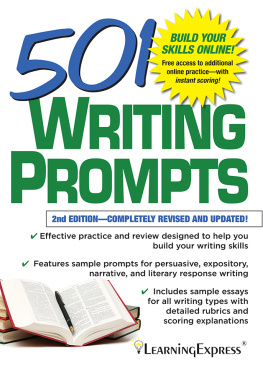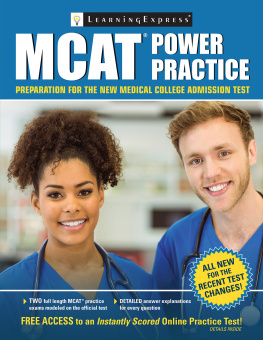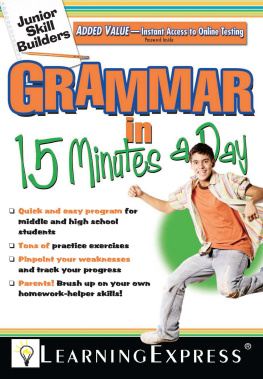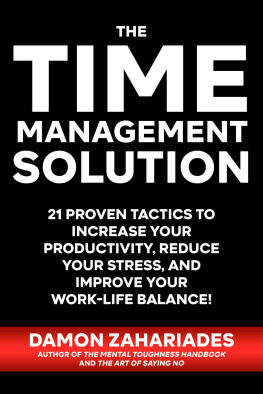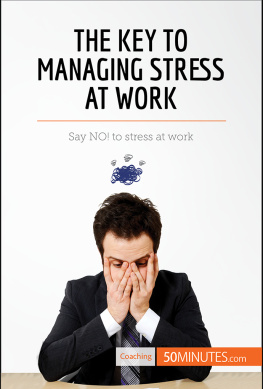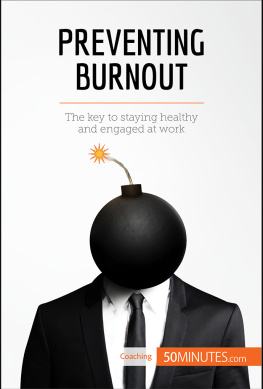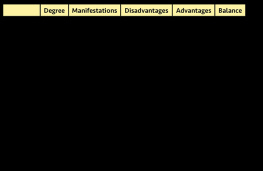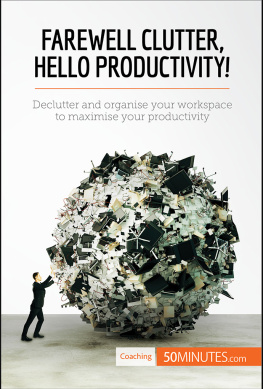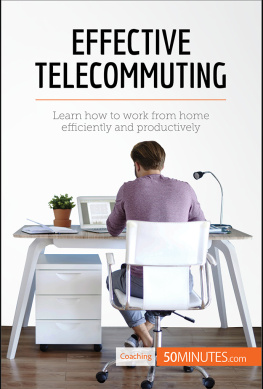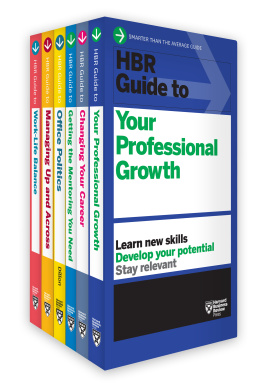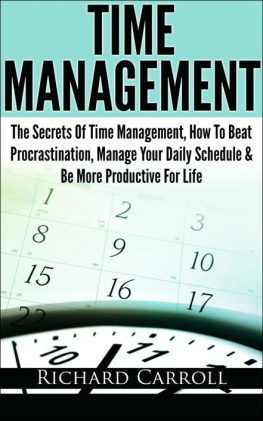SECTION I
How to Manage a Timely Job Search Strategy
Other Titles of Interest from LearningExpress
Write & Speak Like a Professional in 20 Minutes a Day
CHAPTER 2
Time-Saving Tips to Create Winning Job Search Materials
I f you dont plan your time wisely, the job search can seem like a never-ending task. Employers admittedly control much of the process and hold all the cards when it comes to notifying (or not notifying) people when they fill positions. In spite of this, you as a job seeker can manipulate many job search factors to save time, effort, and energywhich, when combined with the tips from Chapter 1, will eventually lead to your desired result. Read on to learn the best way to create materials that will help you find jobs that interest you and get advice to help you evaluate and revise your job search materials.
Identify Companies That Interest You
Save time by looking for a company instead of a job. When you overfocus on jobs and spend too many hours reviewing job boards or perusing posted listings, you may miss chances to learn about opportunities you may find via networking and to apply for unlisted positions that will never appear on job boards. Include both small and large companies in your research. If youre planning to stay in your current geographical area, focus on local companies; if you are willing to relocate, cast a wide net. Tap into business directories or your local business newspaper to identify companies to research. Google to find lists of best companies and search industry publications for organizations you may not have considered.
Focus on Your Skills
Identify the best skills you have to offer and dont waste time applying for jobs with employers who are not interested in your core skills. Delve into who you are as a person, not just who you are as an employee, and make sure not to ignore your soft skills or emotional intelligence. For example, are you an exceptional communicator? Do you have a knack for leading teams? Maybe youre a great negotiator? Purposefully select your best skills and identify fields or jobs where you can use them.
Exercise: Take time to identify and write down the answers to these questions. This information will help you plan your job search.
Honestly ask yourself and answer the following questions.
1. What do supervisors tend to praise about my work?
2. What skills do I enjoy using, and use well?
3. Who am I as a person?
4. What activities at work make me happiest and most confident?
5. What do I offer that helps me stand out from a crowd of applicants?
6. Which accomplishments am I proud to share with target employers?
7. What do I enjoy outside of work?
If you dont know the answers to any of these questions, allot the time necessary to explore and answer them. Connect the dots between what you want to do and what you have done well in the past.
If youre considering a career shift or change, its worth your time to hone in on what you know about yourself, beyond what you normally consider your professional skills. Self-evaluate regularly. Explore your skillsboth in and out of workand leverage the information you find to help decide what jobs are best for you.
Once you know what you have to offer, carefully review job descriptions and read companies online profiles on all the big social networks. For example, review their websites, LinkedIn, and company Facebook profiles and check YouTube and Twitter for details to help you identify how to create materials that will put you ahead of the crowd. When you know what the hiring managers want, youll save yourself a lot of time by applying for the jobs youre qualified to do.
If a company features a particular skill set in their company profile, and you offer a strong match for that skill, highlight the match in your materials. For example, if the phrase team player appears on everything the company publishes online, thats a clue for you to describe what a great team player you are at work! Another item some job seekers fail to capitalize on is if the company has a specific mission or vision that matches whats important to you. For example, if the company posts YouTube videos showing team members volunteering at schools or building homes for Habitat for Humanity, and you are an active volunteer, youll want to indicate your interest in serving the community in your materials.
Target Your Materials
Just as its a bad idea to apply for every job at one organization, its a waste of time to send the exact same resume to apply for 100 different jobs in various companies. Instead of blanketing your resume, target jobs you really want and that youre actually qualified to do. Select jobs based on how good of a fit they are for your skills and qualifications. Scan resumes for skills and keywords that resonate with you, and that you can adequately document in your materials.
Exercise: Find Your Keywords
Choose several job descriptions that interest you. Copy and paste the information into a file and highlight all of the parts of the descriptions that apply to you. Ideally, you will highlight all (or most) parts of the materials. Re-review the highlighted details and underline all of the words that seem to come up more than once. Those are most likely to be the keywords you should include in your resume. Make a list on a separate piece of paper of the most important keywords.
Once you identify the overlap between what employers want and what you offer, create bullet points for your resume to explain how and why you are a good fit.
For example, if the position description requires you to be able to maintain accurate records, function in a fast-paced office, and provide reports, one of your bullet points may say:
Maintained confidential records for all physicians in fast-paced, busy office. Accurately reported numbers of patients and tallied insurance figures at end of each business day, resulting in more efficient, effective office.
Write bullet points that feature keywords and skills from the job descriptions you selected and highlighted.
AVOID APPLICATION MISTAKES
Once youve identified employers, honed in on your skills, targeted your materials with keywords, used social media, and updated your documents, youre ready to apply for jobs. Spend the necessary time to make sure you address your materials to the right employer and dont mistakenly send a resume or cover letter intended for one employer to a different employer. Proofread your materials closely before you apply. Especially if youre a perfect fit for the job, you dont want to ruin your chances to win an interview with hastily written materials that have typos.
Evaluate Your Resume
While employers review online profiles and information you post on social media, your resume is still one of the most important parts of your job search materialsits the one item 99% of postings will ask you to provide. If you have a sub-par resume, you likely wont get a chance to even have an interviewmaking your entire application process for every company you reach out to a waste of your time. Use these tips to help create a document that makes companies take notice.
Dont Include Too Much in Your Resume
One common waste of time and space is creating a resume that can double as an autobiography. Depending on your level of experience, your resume should probably be one or two pages long. (One rule of thumb is one page for 10 years of experience or less and two pages for more than 10 years of experience.) In some cases, a longer resume may be appropriate, but dont be compelled to include irrelevant details (such as computer programs no one uses anymore) or information that has nothing to do with your current goal. Pare down the details so they are concise and relevant for your current target employer.
Its also a waste of time to add details no one expects to see in your resume. For example:
Next page


